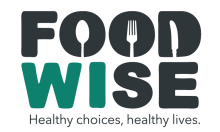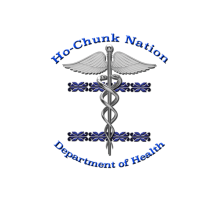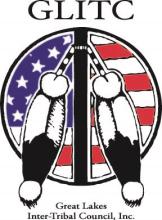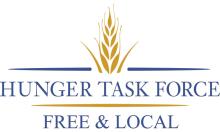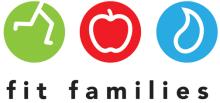Nutrition: SNAP-Ed
Wisconsin SNAP-Ed (Supplemental Nutrition Assistance Program-Education) helps those with limited incomes make healthy food choices and be physically active. This is important because:
- Only one in six Wisconsin adults eats the recommended amount of fruits and veggies.
- Every $1 spent on nutrition education saves $10 in long-term health care costs.
SNAP-Ed works with people eligible for, or receiving, SNAP benefits, which is called FoodShare in Wisconsin.
SNAP-Ed receives funds from the U.S. Department of Agriculture (USDA). The program in Wisconsin is run by staff in the Wisconsin Department of Health Services (DHS), Division of Public Health (DPH), WIC (Special Supplemental Nutrition Program for Women, Infants, and Children) and Nutrition section.
Nutrition education
A healthy diet and active lifestyle can help prevent chronic conditions, such as high blood pressure, heart disease, and obesity. These resources can help you make healthy choices and find food assistance programs.
Healthy choices
- MyPlate.gov—Learn how much of each food group you need.
- Eat Right When Money's Tight—Learn how to eat healthy, while stretching your dollar.
- Seasonal Produce Guide—Find what which fruits and veggies are in season.
- Gardening Basics—Start gardening.
- Preventing Food Poisoning—Keep food safe and avoid illness.
Food programs
- Nutrition and Food Assistance
- FoodShare: A Recipe for Good Health
- WIC Women, Infants, and Children Program
- WIC Farmers Market Nutrition Program
- Senior Farmers Market Nutrition Program
- The Food Emergency Assistance Program (TEFAP)
- Commodity Supplemental Food Program
- Aging: Elderly Nutrition Program
Recipes and more
Find healthy recipes, learn cooking basics, and more.
Recipes
Kids can have fun and help you in the kitchen; take a look at the video below.
Make scrambled eggs with veggies
Cooking and planning
Get active
Use these resources to help you and your family get moving.
Learn tips to get active with your family
Learn tips to get motivated
SNAP-Ed partners and providers
The Wisconsin SNAP-Ed Program partners with the following agencies:
UW-Extension FoodWIse
UW-Extension FoodWIse offers SNAP-Ed in Wisconsin counties.
Ho-Chunk Nation
Ho-Chunk Nation offers SNAP-Ed to tribal members living in or around Black River Falls, Nekoosa, Wisconsin Dells, La Crosse, Tomah, and Wittenberg.
GLITC
Great Lakes Inter-Tribal Council, Inc. (GLITC) offers SNAP-Ed to the Native American tribes and communities in Bad River, Lac du Flambeau, Mole Lake, Red Cliff, Stockbridge-Munsee, and St. Croix.
Hunger Task Force
Hunger Task Force offers SNAP-Ed in Milwaukee County at selected Milwaukee Public Schools, the Hunger Task Force farm, and their food pantry network.
FoodRight Youth Chef Academy
FoodRight Youth Chef Academy offers SNAP-Ed at selected Milwaukee Public Schools.
Fit Families
Wisconsin Fit Families offers SNAP-Ed through selected Fit Families projects (administered by WIC agencies) in various counties around the state.
SNAP-Ed is offered many locations, such as :
- Schools that serve mostly free and reduced-price meals.
- Child care centers.
- Summer Food Service Program sites.
- WIC clinics.
- Community centers participating in the Child and Adult Care Feeding Program.
- Farmers markets that offer the WIC Farmers Market Nutrition Program or Senior FMNP.
- Food distribution sites.
- Food pantries.
Contact our partner agencies for information about participating in SNAP-Ed activities offered in your area. Participation is free.
- USDA SNAP-Ed Connection—SNAP-Ed resources
- USDA SNAP-Ed Plan Guidance and Templates—program guidance for SNAP-Ed staff and partners
- State SNAP-Ed Programs—Contact information by state · Association of SNAP Nutrition Education Administrators (ASNNA)—Professional organization
- Food Research & Action Center (FRAC)—National anti-hunger organization
- Fit Families—Program that works with families enrolled in Wisconsin WIC and other organizations
Wisconsin Fit Families is a childhood obesity prevention program that works with families enrolled in Wisconsin WIC and other organizations that serve participants with limited incomes.
Fit Families offers nutrition education and coaching to families with 2- to 4-year-old children enrolled in WIC at Fit Families projects.
Families enrolled in Fit Families make an individual healthy habits goal that they work on for 12 months. A Fit Families coach offers guidance and support to help families meet their goals. Families receive prizes to help motivate healthy behavior changes.
Currently, there are 38 Fit Families projects across the state in selected local WIC projects that offer the Fit Families program. They are:
- Barron
- Bay Area (Bayfield, Ashland, and Iron counties) Chippewa
- Columbia
- Dunn
- Eau Claire
- Family Health/La Clinica (Waushara, Marquette, and Green Lake counties)
- Fond du Lac
- Forest
- Great Lakes Inter-Tribal Council (at selected Tribal Nation sites)
- Healthfirst Network (Marathon, Lincoln, and Langlade counties)
- Green
- Jackson
- Jefferson
- Juneau/Adams
- Kenosha
- Kewaunee
- La Crosse
- Marinette
- Monroe
- Northwest Community Services Agency (Douglas County)
- Oneida
- Outagamie
- Pierce/Pepin
- Polk
- Portage
- Shawano
- Sheboygan
- Sauk
- Trempealeau/Buffalo
- St. Croix
- Southwestern Wisconsin Community Action Agency (Crawford, Iowa, Lafayette, and Richland counties)
- Walworth
- Waukesha
- Waupaca
- West Allis
- Winnebago
- Wood
Those enrolled in WIC and living in one of these areas can check with their agency for information about enrolling in Fit Families. View a list of local WIC offices.
Who to contact for help
Questions? Contact us:
Email: DHSSNAP-Ed@dhs.wisconsin.gov
Mail:
Wisconsin Department of Health Services
SNAP-Ed Coordinator
201 E. Washington Ave., Room E100
PO Box 2659
Madison, WI 53707-7850
USDA nondiscrimination statement
USDA Nondiscrimination Statement 2022
Supplemental Nutrition Assistance Program (SNAP) and Food Distribution Program on Indian Reservations (FDPIR) state or local agencies, and their subrecipients, must post the following Nondiscrimination Statement:
In accordance with federal civil rights law and U.S. Department of Agriculture (USDA) civil rights regulations and policies, this institution is prohibited from discriminating on the basis of race, color, national origin, sex (including gender identity and sexual orientation), religious creed, disability, age, political beliefs, or reprisal or retaliation for prior civil rights activity.
Program information may be made available in languages other than English. Persons with disabilities who require alternative means of communication to obtain program information (e.g., Braille, large print, audiotape, American Sign Language), should contact the agency (state or local) where they applied for benefits. Individuals who are deaf, hard of hearing or have speech disabilities may contact USDA through the Federal Relay Service at 800-877-8339.
To file a program discrimination complaint, a Complainant should complete a Form AD-3027, USDA Program Discrimination Complaint Form which can be obtained online at: https://www.usda.gov/sites/default/files/documents/USDA-OASCR%20P-Complaint-Form-0508-0002-508-11-28-17Fax2Mail.pdf, from any USDA office, by calling 833-620-1071, or by writing a letter addressed to USDA. The letter must contain the complainant’s name, address, telephone number, and a written description of the alleged discriminatory action in sufficient detail to inform the Assistant Secretary for Civil Rights (ASCR) about the nature and date of an alleged civil rights violation. The completed AD-3027 form or letter must be submitted to:
1. mail:
Food and Nutrition Service, USDA
1320 Braddock Place, Room 334
Alexandria, VA 22314; or
2. fax: 833-256-1665 or 202-690-7442; or
3. email: FNSCIVILRIGHTSCOMPLAINTS@usda.gov
USDA Nondiscrimination Statement 2022
Las agencias estatales o locales del Programa de Asistencia de Nutrición Suplementaria (SNAP) y del Programa de Distribución de Alimentos en Reservaciones Indígenas (FDPIR), y sus subreceptores deben publicar la siguiente Declaración de No Discriminación:
De acuerdo con la ley federal de derechos civiles y las normas y políticas de derechos civiles del Departamento de Agricultura de los Estados Unidos (USDA), esta entidad está prohibida de discriminar por motivos de raza, color, origen nacional, sexo (incluyendo identidad de género y orientación sexual), credo religioso, discapacidad, edad, creencias políticas, o represalia o retorsión por actividades previas de derechos civiles.
La información sobre el programa puede estar disponible en otros idiomas que no sean el inglés. Personas con discapacidad que requieran medios alternos de comunicación para obtener información sobre el programa (por ejemplo, Braille, letra grande, cinta de audio, lenguaje de señas americano), debe ponerse en contacto con la agencia (estatal o local) donde solicitaron los beneficios. Las personas sordas, con dificultades auditivas o con discapacidades del habla pueden comunicarse con el USDA a través del Servicio Federal de Retransmisión al 800-877-8339.
Para presentar una queja por discriminación en el programa, el reclamante debe llenar un formulario AD-3027, formulario de queja por discriminación en el programa del USDA que puede obtenerse en línea en: https://www.fns.usda.gov/sites/default/files/resource-files/usdaprogram-discrimination-complaint-form-spanish.pdf, en cualquier oficina del USDA, llamando al (833) 620-1071, o escribiendo una carta dirigida al USDA. La carta debe contener el nombre del demandante, la dirección, el número de teléfono y una descripción escrita de la acción discriminatoria alegada con suficiente detalle para informar al Subsecretario de Derechos Civiles (ASCR) sobre la naturaleza y fecha de una presunta violación de derechos civiles. El formulario AD-3027 completado o la carta debe presentarse por:
(1) correo:
Food and Nutrition Service, USDA
1320 Braddock Place, Room 334
Alexandria, VA 22314;
(2) fax:
833-256-1665
202-690-7442; o bien por
(3) correo electrónico:
FNSCIVILRIGHTSCOMPLAINTS@usda.gov
Esta entidad es un proveedor que brinda igualdad de oportunidades.
Cov Sob Lus Uas Hais Txog Kev Tsis Pub Cais Neeg Tsis Raws Cai
Raws li tsoom fwv teb chaws tsab cai lij choj hais txog neeg txoj cai thiab U.S. Department of Agriculture (USDA) cov cai tswj thiab cov cai qhia ua hauj lwm hais txog neeg txoj cai, lub USDA, nws cov Koom Txoos Khiav Hauj Lwm, cov chaw ua hauj lwm, thiab cov neeg ua hauj lwm, thiab cov tuam tsev ua hauj lwm uas koom rau hauv los yog tswj fwm USDA cov kev pab cuam raug txwv kom tsis pub muaj kev cai neeg tsis raws cai los ntawm haiv neeg, tsos nqaij daim tawv, keeb kwm teb chaws uas yug los, poj niam/txiv neej, muaj mob xiam oob qhab, hnub nyoog, los yog ua phem los yog ua pauj rau ntawm qhov uas tau tawm lus tsis txaus siab txog neeg txoj cai yav dhau los hauv ib qho kev pab cuam uas tswj los yog tau nyiaj pab los ntawm USDA.
Cov neeg muaj mob xaim oob qhab uas nws thov kom muaj lwm cov hau kev los mus pab txoj kev sib cev lus kom paub txog qhov kev pab cuam (piv txwv li, muab cov ntawv pauv kom siv tes kov ces paub tias yog txhais li cas (Braille), ntaus tus ntawv kom loj, muab cov lus kaw cia tau mloog, Meskas Kev Piav Tes Txhais Lus (American Sign Language), thiab lwm yam), yuav tsum hu rau lub Koom Txoos Khiav Hauj Lwm (Lub Xeev los yog hauv zos) nyob ntawm qhov chaw uas lawv ua ntawv thov kev pab. Cov tib neeg uas lag ntseg, hnov lus tsis zoo, los yog muaj teeb meem hais lus tsis tau yuav hu tau rau USDA ntawm Federal Relay Service ntawm (800) 877-8339. Ib qho ntxiv, kev xav paub txog kev pab cuam kuj yuav muaj pab ua lwm hom lus uas tsis yog lus Askiv.
Yog hais tias xav sau ib daim ntawv tsis txaus siab txog qhov kev pab cuam, ua kom tiav daim USDA Program Discrimination Complaint Form, (AD-3027) uas nrhiav tau hauv online ntawm: https://www.usda.gov/oascr/how-to-file-a-program-discrimination-complai…, thiab nyob rau ntawm USDA ib qhov chaw ua hauj lwm twg, los yog sau ib tsab ntawv xa mus rau USDA thiab muab tas nrho cov lus kom muab hauv daim foos tso rau hauv tsab ntawv. Yog yuav thov ib daim qauv luam ntawm daim foos tsis txaus siab, hu rau (866) 632-9992. Xa koj daim foos uas muab ua tiav txhij txhua los yog tsab ntawv mus rau USDA uas yog:
(1) xa hauv tsev xa ntawv mus (mail):
U.S. Department of Agriculture
Office of the Assistant Secretary for Civil Rights
1400 Independence Avenue, SW
Washington, D.C. 20250-9410;
(2) fax: 202-690-7442; los yog
(3) email: program.intake@usda.gov.
Lub tuam tsev ua hauj lwm no yog ib qhov chaw muab kev pab cuam uas muab vaj huam sib luag rau sawv daws.

